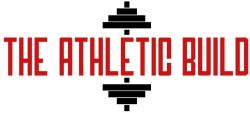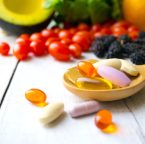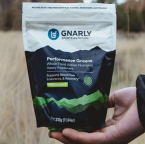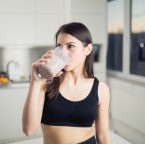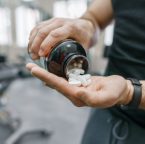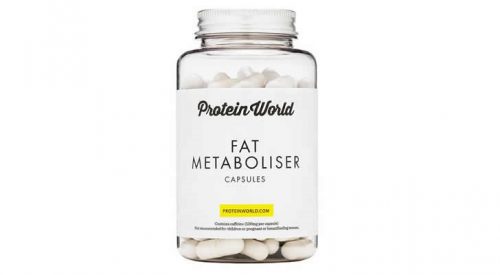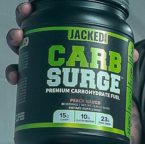Did you know that multivitamins are just as important as protein when it comes to athletic performance and building muscle?
While there’s no doubt that protein is the undisputed macronutrient, relying on it alone tends to open a can of worms later on. This is where vitamins and minerals come into play- these helpful nutrients give you a nice lift in energy production and physical performance.
So, exactly how do multivitamins affect athletes? Also, what are the best vitamins and minerals you should take along with protein? We’ll tackle these questions and more below.
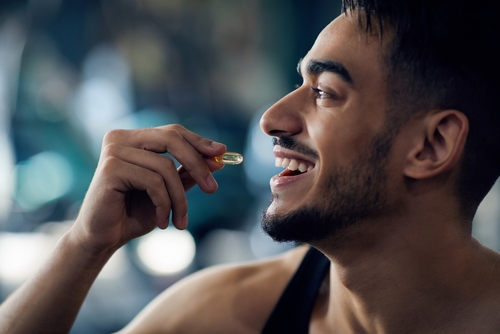
How Do Multivitamins Affect Athletes?
Protein isn’t actually the end-all macro you thought it was. And while it’s true that you need it to build muscle and mass, you’ll soon reach a point where your body will be limited in terms of energy, stamina and recovery.
The right mix of multivitamins can shore up those weaknesses and unlock your true athletic potential. However, it’s worth noting that you shouldn’t just blindly buy the first multivitamin supplement you see- some that are better than others, which we’ll discuss a bit later on.
Generally speaking, the right mix and dosage of vitamins and minerals can really make a difference in realizing your full potential. Now that we have this down pat, you might wonder, ill I need more multivitamins than usual?’
Multivitamin Dosage- Is More Better for Athletes?
The simple truth is yes, athletes and bodybuilders will need more than the usual dose of multivitamins than the average joe.
While overdosing is all too real and should be avoided at all costs, this actually doesn’t apply to vitamins and minerals. A person’s diet is what fuels their workouts, and if you don’t have enough nutrients you’ll find yourself spent too soon.
Plus, your body experiences constant wear and tear, particularly the muscles, tendons and bones, and the sooner you can repair it the better. Also, the process of recovery won’t be as complete if you run out of crucial nutrients, thus cementing the need for a multivitamin product.
Multivitamin Supplements or Food – Which is Better?
Always, always get your essential micro and macro nutrients from your diet first before you venture out into the supplement niche.
We recommend that you aim for balance and get as much of what you need as possible from whole foods. However, there may come a point that you’ll need to supplement to reach optimal performance or to support your training regimen.
Vitamin supplements become the clear choice if you’re on a vegetarian or vegan diet and refuse to consume highly processed or fortified foods. If this is the case, then you’d better do thorough research and get a high-quality multivitamin product that’s right for you.
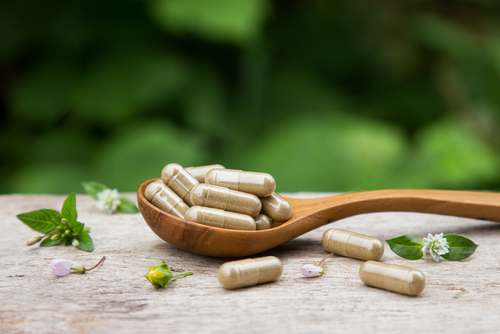
The 8 Best Multivitamin Components for Athletes
Vitamin B
When looking at B vitamins, two notable standouts surface- vitamin B12 and B6. Both are equally important as they facilitate the creation of red blood cells.
In case you don’t know, red blood cells fuel your muscles and vital organs by sending oxygen and nutrients to where they’re needed. Lower RBCs means there’s a bottleneck in energy and oxygen transportation, which translates to earlier fatigue and exhaustion.
Magnesium
Magnesium is always good to have since our bodies need so much, and yet there are very few natural foods that have it.
The most obvious use of magnesium is to prevent cramps during exercise and the recovery phase. The good news is that it’s a relatively cheap mineral and widely available in supplement form.
Iron
Iron as a nutrient works the same way as B vitamins in that it prevents your red blood count from falling too low.
Being anemic can certainly impact athletic performance (and not in a good way), and there’s a direct correlation to your RBC’s health and your energy levels. You shouldn’t have too many problems though if you consume leafy greens and red meat.
However, you should keep in mind that athletes need more than the usual dosage, and you wouldn’t want your iron to dip too low in crucial times.
Vitamin D
We get free vitamin D by going outside on a sunny day, but you’d be surprised to find that there are people who are nutrient deficient, particularly those who constantly apply sunscreen and those who stay indoors most of the time.
Vitamin D and energy metabolism are linked together, which means that you should actively supplement on every chance you get for optimal performance. It’s also one of the easiest to miss when shopping for a multivitamin. (1)
Sodium
Salt is beneficial as long as you stay within the recommended amount. It’s a cheap form of electrolyte that keeps you hydrated during training and allows you to push further.
Calcium
Is there any doubt that calcium makes the list of important minerals for athletic performance?
For one, calcium is crucial when it comes to maintaining bone density and for repairs. Stress fractures are significantly reduced when you have an adequate amount running through your system.
Also, calcium works similarly to magnesium in that it helps with muscle recovery and contraction. You get a two-for-one deal for a mineral that’s often overlooked. (3)
Vitamin E
Surprisingly, vitamin E can contribute a whole lot of good in eliminating oxidative toxins from the body.
Toxin builds up over time, and more so for active people. Vitamin E is a great way to get rid of the accumulation of toxins in your muscles, and it frees up your metabolism to do its work. (2)
Vitamin C
Vitamin C is in the same boat as vitamin E in that it removes oxidative stress. What’s worth noting is that detoxification plays an important role in an athlete’s life, mostly due to the fact that high-intensity exercise leads to faster and greater toxic buildup. Vitamin C is a cost-effective way to detox, along with a balanced and nutritious diet.
Related: Best Multivitamins for Women
Related: Best Multivitamins for Men
The Bottom Line
Don’t overlook multivitamins and the role they play in your athletic performance. Sure, you can never get enough of protein, but all those macros will need a supporting cast for the best results.
References
1. Hamilton B. Vitamin d and athletic performance: the potential role of muscle. Asian J Sports Med. 2011 Dec;2(4):211-9. doi: 10.5812/asjsm.34736. PMID: 22375241; PMCID: PMC3289217.
2. https://ods.od.nih.gov/factsheets/VitaminE-HealthProfessional
3 https://www.hss.edu/playbook/why-calcium-matters-for-sports-and-where-to-get-it/
